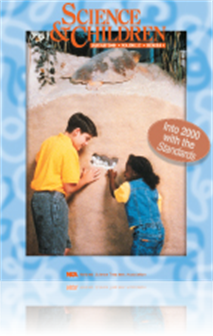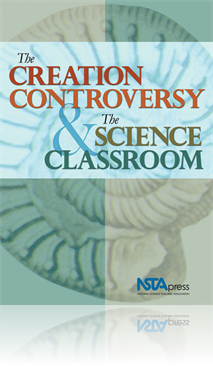All Resources
Journal Article
Project WET (Water Education for Teachers) is an international, broad-based water science and education program for formal and informal educators of s...
Journal Article
Enquiry, the Science Teacher, and the Educator
What our teachers need to teach is determined, first, by the first that our national need is a dual one. There is an urgent pressing need for an incre...
Journal Article
The Galápagos Islands are sometimes thought of as the birthplace of evolution. Not because evolution begins there, not because evolution occurs there...
Journal Article
This article is one of a series that grew out of the question: Just what does educational research have to say to science teachers? In the case of the...
Journal Article
Multicultural Science Education
There are many definitions of multicultural education. One of the most comprehensive definitions describes multicultural education as at least three t...
Journal Article
Teachers who successfully use diverse learning modes in their instructional approaches accomplish several remarkable things. First, they create a clim...
Journal Article
When an ethical issue is still being debated publically, it is inappropriate for schools to advocate a particular position—either explicitly or impl...
Journal Article
It is the authors hope that the science education community will use the results of the Third International Mathematics and Science Study (TIMSS) to e...
Journal Article
As teachers make the transition to inquiry-centered science, they discover a need for new assessments. In response to this need, a group of 125 elemen...
Journal Article
Charles W. Eliot’s Legacy to Science Education
Had Charles W. Eliot—a young Harvard graduate trained in chemistry—accepted an offer in 1865 to become a superintendent of the Merrimac Mills in L...
Journal Article
Last year the authors embarked on a study to find out whether more student-centered instruction was occurring in block-scheduled biology classes than ...
Journal Article
Science education reform is a topic that has gained increased exposure with such headline-making proposals as SS&C and Goals 2000. While these are onl...
Journal Article
A Permanent Agenda for Science Teachers
It may seem a singular act of arrogance for us to suggest that a permanent agenda for science teaching exists. Trends come and go, and veteran profess...
Journal Article
When the mathematical structure of physics is used instead to show the relationships between ideas and concepts, without the algebraic manipulations a...
Book Chapter
Modern Science and the Book of Genesis
Many religious people, including scientists, hold that God created the universe and the various processes driving physical and biological evolution an...





